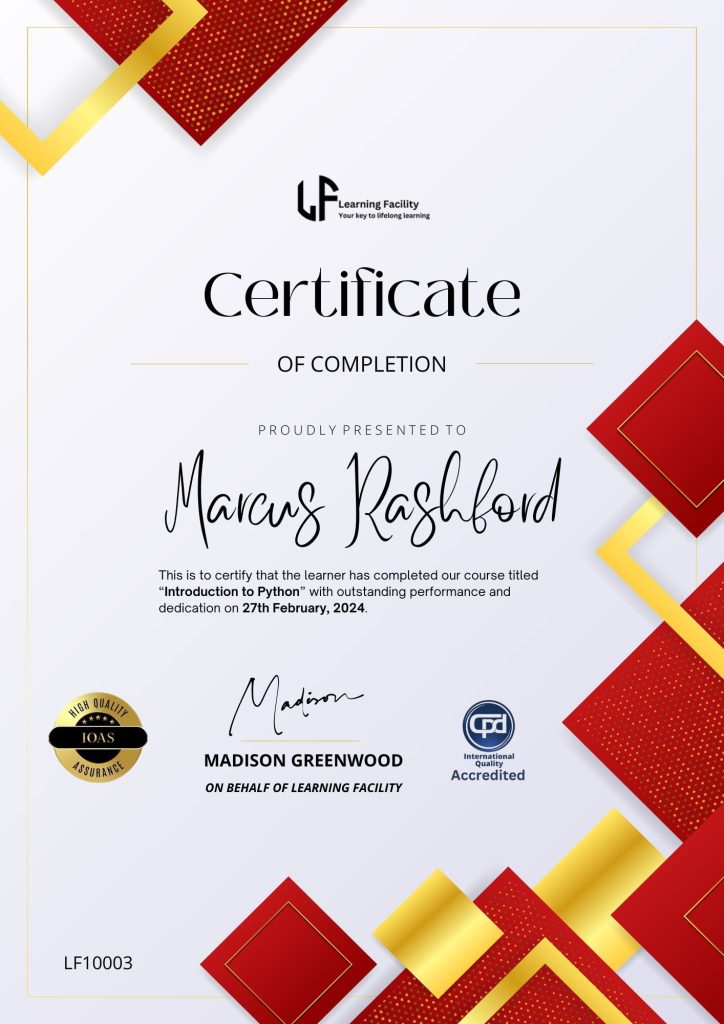The Play Therapy – The Psychology of Play course offers a comprehensive understanding of how play can be used as a therapeutic tool. This course delves into the psychological theories and techniques behind play therapy, examining its role in emotional and developmental growth. You will learn about the therapeutic processes of play, its impact on children and adults, and how it can help address a range of psychological issues.
Key Features of the Course
- Free PDF Certificate from Learning Facility
- Instant Access to the course materials
- Lifetime Access
Description
Play Therapy – The Psychology of Play explores how play functions as a powerful tool in therapy. The course examines the psychological theories behind play, its therapeutic uses in treating children, and its broader applications. Participants will gain an understanding of how to incorporate play into therapeutic practices, focusing on its significance in emotional expression, problem-solving, and behavioral improvement. By the end of this course, you will have a deeper appreciation of the psychology of play and its pivotal role in therapy.
Who is this course for?
This course is ideal for mental health professionals, counselors, and anyone interested in understanding the therapeutic power of play. It is particularly beneficial for those working with children or individuals seeking to incorporate play into their therapeutic practices. Additionally, educators and caregivers interested in learning more about the psychological benefits of play will find valuable insights.
Requirement
This course requires no formal qualification to start.
Career Path
Completing Play Therapy – The Psychology of Play opens pathways to careers in therapeutic settings such as child therapy, counseling, school psychology, and social work. You may also pursue roles where understanding the psychology of play is key, such as working in hospitals, clinics, and community organizations. This course is an excellent foundation for those interested in becoming play therapists or integrating play therapy techniques into their current practice.

